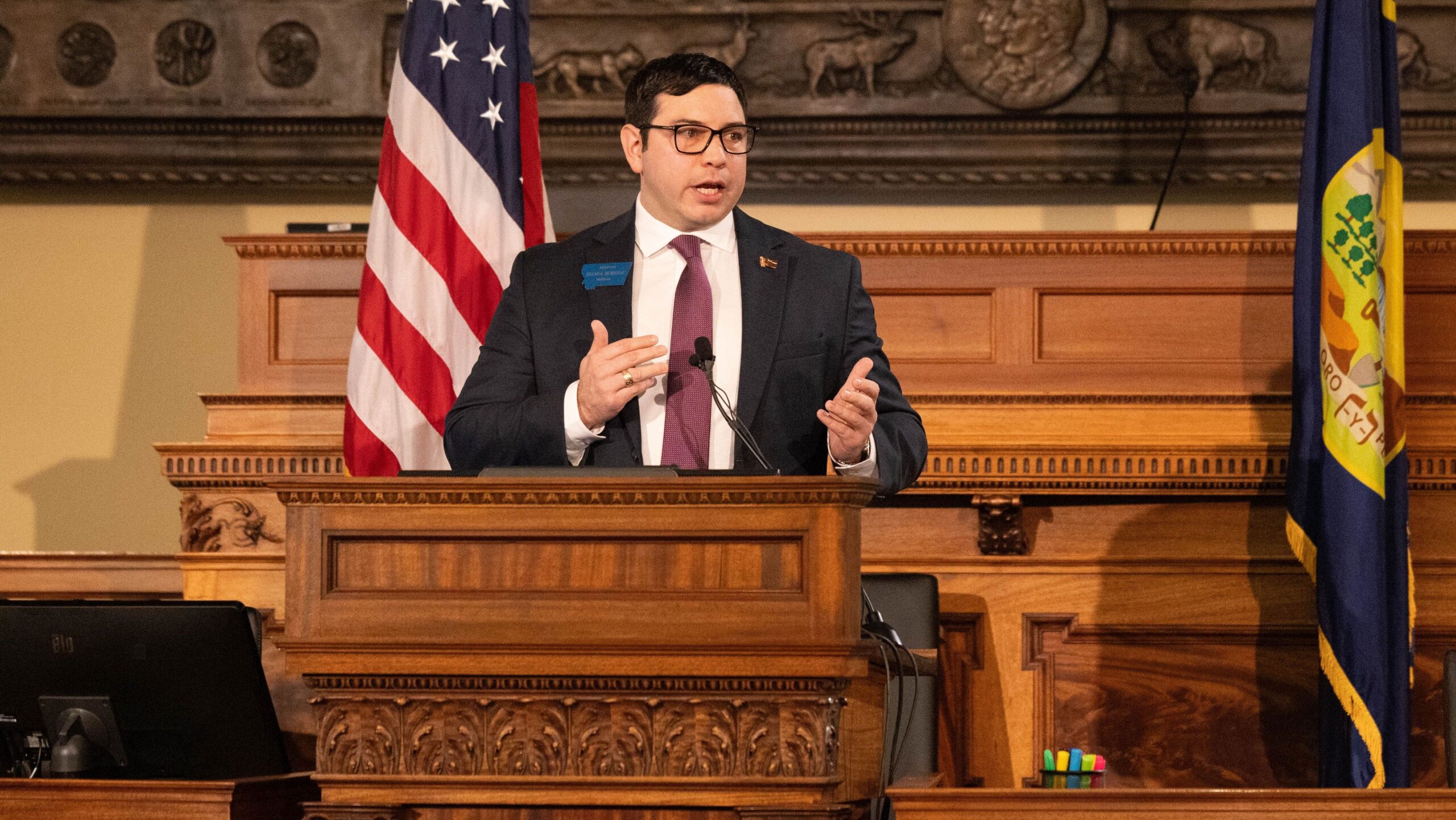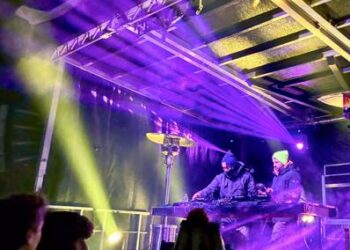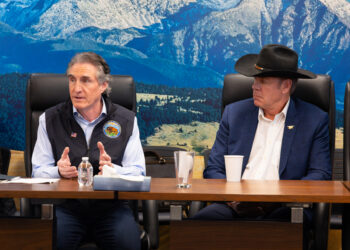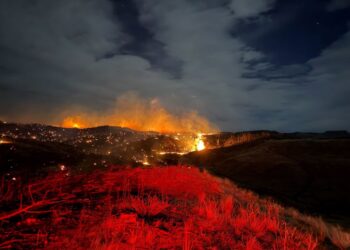After years of legislative debate, Oct. 13 marks the first time the state has officially observed the day as a legal holiday.
By Nora Mabie MONTANA FREE PRESS
Though people have celebrated Indigenous Peoples’ Day in Montana for years, Monday marks the first time the state has officially commemorated the day as a legal holiday.
After a group of state lawmakers and advocates spent a decade urging recognition of the holiday, Republican Gov. Greg Gianforte signed Senate Bill 224 into law this spring, establishing Indigenous Peoples’ Day as an official state holiday alongside Columbus Day.
“I’m really excited,” said Marsha Small, cofounder of the advocacy group Indigenous Peoples Day Montana. She and other supporters of SB 224 told state lawmakers during the 2025 legislative session that Indigenous Peoples’ Day is about celebrating ancestry.
“This isn’t a political stunt,” she said. “I want people to look out their door and recognize their neighbors and talk to their neighbors. There’s so much hate right now. And this is about communities working together for a better horizon.”
Sen. Shane Morigeau, D-Missoula, who sponsored SB 224, said state recognition of the holiday is a symbol of respect.
“As young people, when you know your history, your culture, and you take pride in your identity, it empowers those kids to be more self-confident and to be more productive over time,” he said. “And all of these little things add up. … It does matter, and I think that it’s going to make a big difference over time.”
He and Small plan to celebrate the day by participating in a community round dance at Peets Hill in Bozeman. There, Small said, members of Indigenous Peoples Day Montana will “take their bows because they worked hard to get this passed.”
While Indigenous Peoples’ Day is not a federal holiday, Montana joins a growing list of more than a dozen states and at least 200 cities that officially recognize the day. Former President Joe Biden in 2021 issued the first presidential proclamation recognizing Indigenous Peoples’ Day. Last spring, however, President Donald Trump wrote on Truth Social that he is “bringing Columbus Day back,” and Oct. 9 he issued a proclamation recognizing Columbus Day — already a federal holiday — calling Christopher Columbus “a true American hero.”
Asked about the president’s proclamation, Small said people can celebrate whatever holiday they want.
“I just want this day to be about healing and moving forward,” she said. “This is about getting people to get along instead of constant fighting. I’m bored of that.”
History of Columbus Day
Responding to Italian American prejudice in 1892, U.S. President Benjamin Harrison proclaimed the 400th anniversary of Columbus’ arrival in America as a national holiday. Celebrations continued across the country annually, and in 1937 Columbus Day officially became a national holiday.
“As Columbus Day went from being locally recognized to becoming a national holiday, that really solidified [Italian Americans’] connection and their centrality to this national narrative, this national story,” said Rosalyn LaPier, a history professor at the University of Illinois Urbana-Champaign. “It helped the Italian Americans be seen not in a prejudicial light and be part of the United States.”
By 1992 — the 500th anniversary of Columbus’ arrival — LaPier, who is Blackfeet and Métis, noted that Indigenous activists were increasingly voicing opposition to the holiday.
“They were saying, ‘Wait a minute, why are we celebrating the discovery of America? We were already here. We should be celebrating the Native people who have been here for centuries,’” she said.
Cities and states in the 1990s began recognizing Indigenous Peoples’ Day in place of Columbus Day. And the holiday received renewed national attention in 2020 after a Minnesota police officer killed George Floyd, sparking national outrage and a racial justice movement.
“That’s when you saw a lot of pushback against different statues of Confederate generals, for example,” LaPier said. “You saw pushback again against Christopher Columbus. And a lot of the Columbus statues that were in different places in the United States, people started taking them down.”
That tension reached the state Capitol when members of Montana’s American Indian Caucus and other advocates urged lawmakers to recognize Indigenous Peoples’ Day. Over the last decade, state lawmakers have cited various reasons for opposing the establishment of a state-recognized holiday in October. Some took issue with past legislation that would have eliminated Columbus Day, arguing that Columbus is an important historical figure. In 2023, lawmakers criticized Morigeau for speaking about the atrocities Columbus committed against Native Americans when he advocated for a similar bill.

That experience, Morigeau said, informed his and other advocates’ strategy going into the most recent legislative session.
“What we decided was, we’re going to focus more on what we can control, and what we can control is what our day is,” he said. “Let’s focus on what our day is and the fact that we have this beautiful, inclusive holiday that is being celebrated all across the state for years now. Let’s find a way to keep this really positive.”
That message proved effective when Gianforte signed the bill into law last spring.
“It’s a positive thing for Montana,” Morigeau said. “I think it’s a positive thing for us to learn about each other, to better understand each other.”














